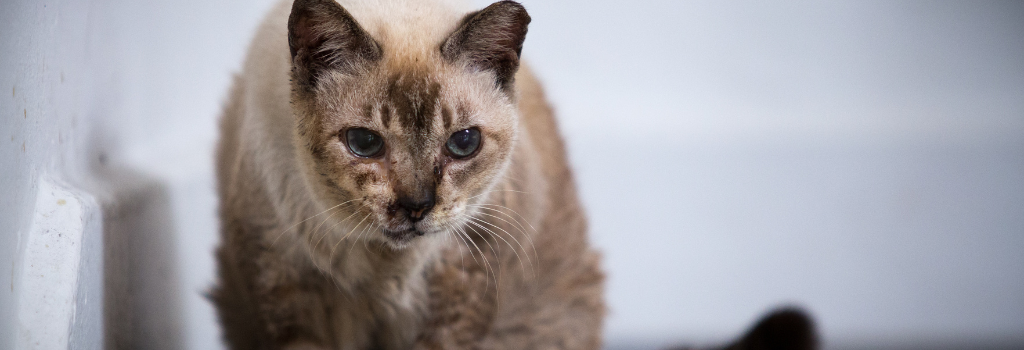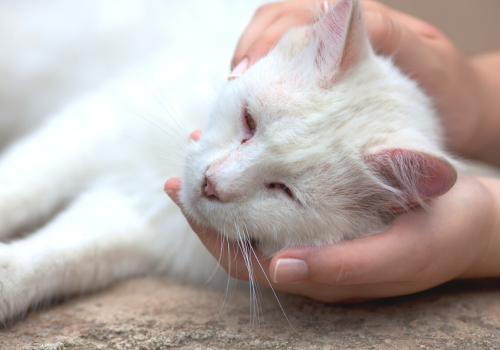Cat Pain Management
No pet parent wants to see their cat in pain. Unfortunately, just like people, cats can experience discomfort from a variety of issues—injury, illness, surgery, or simply the effects of aging. When your feline friend is hurting, it’s natural to want answers you can trust.
At Whittington Veterinary Clinic, we understand how distressing this can be. If you’ve been searching online for guidance, we’re glad you found us. While we always recommend speaking directly with a veterinarian, we’ve answered some of the most frequently asked questions about feline pain to help you better understand what may be going on—and how we can help.
How Do I Know If My Cat Is in Pain?
Cats are naturally stoic and often hide their pain. Subtle changes in behavior are usually the first sign something’s wrong. If your cat is acting differently, trust your instincts and let us know.
Common signs of pain in cats include:
- Hiding more than usual
- Decreased activity or reluctance to jump
- Aggression when touched or picked up
- Changes in litter box habit
- Eating or drinking less
- Increased vocalization
- Limping or stiffness
- Weight loss or grooming changes
If your cat isn’t acting like themselves, it’s best to schedule an exam so we can determine the cause.

How Will My Veterinarian Know If My Cat Is in Pain?
Understanding your cat’s history gives us valuable insight. We’ll perform a full nose-to-tail physical exam, checking for pain, inflammation, stiffness, or abnormal responses to movement or touch. In some cases, we may recommend additional testing—such as bloodwork or x-rays—to determine the underlying cause and create the right treatment plan.
What Are Common Causes of Pain in Cats?
Pain can be caused by a range of issues, including:
- Injury or trauma
- Arthritis – common in older cats
- Dental disease
- Gastrointestinal disorders
- Cancer – depending on type and stage
If your cat isn’t jumping or climbing like they used to, or they’ve become withdrawn, they could be experiencing chronic discomfort.
What Pain Medications Might You Prescribe?
Because cats process medications differently than dogs or humans, we carefully choose medications that are safe and effective based on your cat’s age, health, and diagnosis.

What’s the Best Way to Manage Pain in Cats?
There’s no one-size-fits-all solution. Pain management for cats often requires a combination of treatments, like medication, lifestyle changes, and supplements, to effectively relieve discomfort.
For geriatric cats or those with serious illness, quality of life becomes the priority. If pain becomes unmanageable, we’ll help guide you through your options with compassion and honesty. At Whittington Veterinary Clinic, we’re here to support your cat's health—and your peace of mind—every step of the way.
You Know Your Cat Best—And We’re Here to Help
If you notice changes that concern you or suspect they may be in pain, don’t wait to reach out. Early care leads to better outcomes and helps your cat stay comfortable, healthy, and happy. Please call us at (337) 893-8522.
